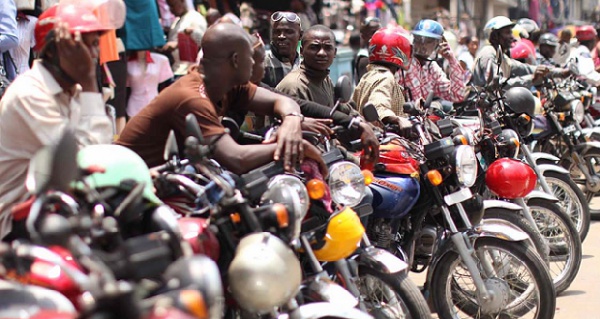The government has taken a decisive step toward legalising the commercial use of motorbikes, known locally as Okada, with the Minister of Transport, Joseph Bukari Nikpe, directing the Driver and Vehicle Licensing Authority (DVLA) to begin the registration and licensing of motorbikes for commercial purposes immediately.
The directive marks the first significant move toward fulfilling the ruling National Democratic Congress’ (NDC) 2024 campaign promise to legalise Okada, a controversial but widely practised mode of transport across the country.
Mr Nikpe, who is also the Member of Parliament (MP) for Saboba, made this announcement during a working visit to the DVLA and other agencies under the transport ministry on his first day in office.
Regulatory Challenges and Legal Hurdles
The decision comes despite the existence of the Road Traffic Regulations, 2012 (L.I. 2180), which explicitly prohibits the commercial use of motorbikes and tricycles.
Regulation 128(1) states that the licensing authority shall not register a motorcycle to carry fare-paying passengers, while subsection (2) prohibits individuals from using motorbikes for commercial purposes except for courier and delivery services.
Read Also: Uganda battles new Ebola outbreak amid communication gaps and vaccine hesitancy
However, these laws have not been strictly enforced, allowing Okada operations to flourish across urban and rural communities.
The move to legalise Okada will require a revision of L.I. 2180, a process that the government aims to expedite.
Ensuring Road Safety and Order
Mr Nikpe highlighted that legalising Okada would help enforce road safety measures and instill discipline among motorbike riders, who are often accused of reckless riding and flouting traffic regulations. He noted that commercial riders would now be required to obtain proper licenses and training before transporting passengers.
“We are committed to revising the law to allow Okada riders to operate legally while ensuring that they are well-trained and licensed. This is a step toward reducing road accidents and making transport safer,” he stated.
Improving Transport Infrastructure and Worker Welfare
Beyond Okada legalisation, the Transport Minister outlined his broader vision for the sector, including decongesting the roads by strengthening rail, air, and port transport. He believes that once all 15 agencies under the ministry are fully operational, the transport system will become more efficient and business-friendly.
Additionally, Mr Nikpe assured staff within the transport sector of improved working conditions, including addressing salary arrears for employees of the now-defunct Ministry of Railway Development, which has been integrated into the Transport Ministry.
Crackdown on Middlemen in DVLA
As part of efforts to enhance service delivery, the minister vowed to eliminate middlemen, commonly known as “goro boys,” who exploit people seeking DVLA services. He emphasised the need for technology-driven solutions to streamline operations and make services more transparent and efficient.
“We want a DVLA where there are no intermediaries; technology should drive service delivery to ensure efficiency and value for money,” he stressed.
What’s Next?
With the minister’s directive in place, the DVLA is expected to roll out plans for registering and licensing Okada riders in the coming weeks. Meanwhile, the process of amending the legal framework to formalise Okada operations is expected to begin soon, with stakeholders keenly watching how the government navigates the regulatory and safety concerns surrounding this move.
As Ghana edges closer to officially recognising Okada, the debate over its impact on road safety, urban transport efficiency, and economic opportunities continues to spark discussions among policymakers, transport unions, and the public.

























